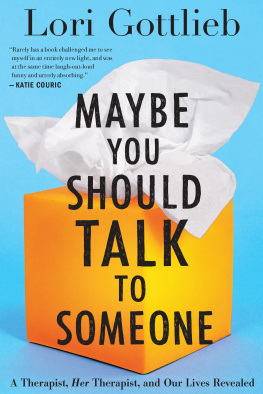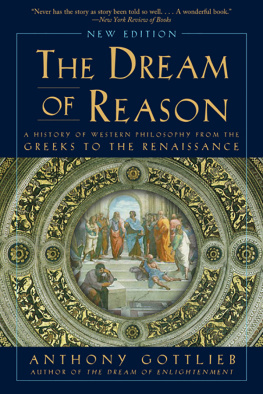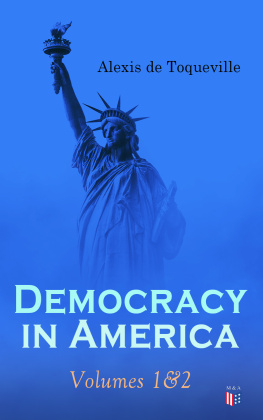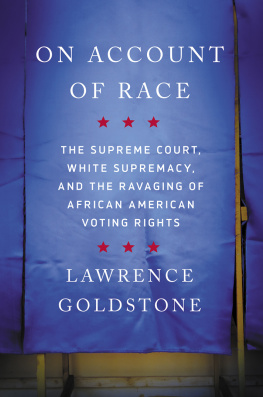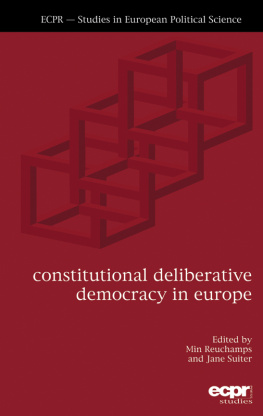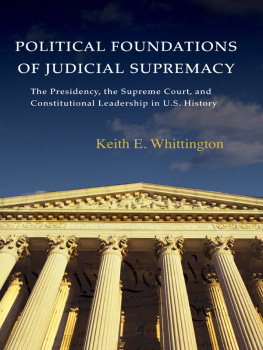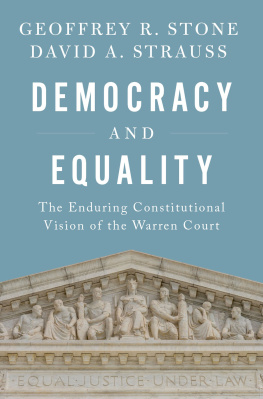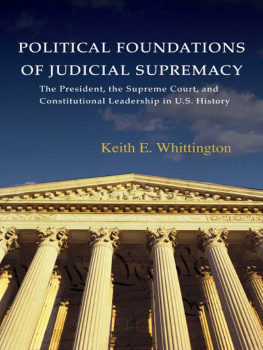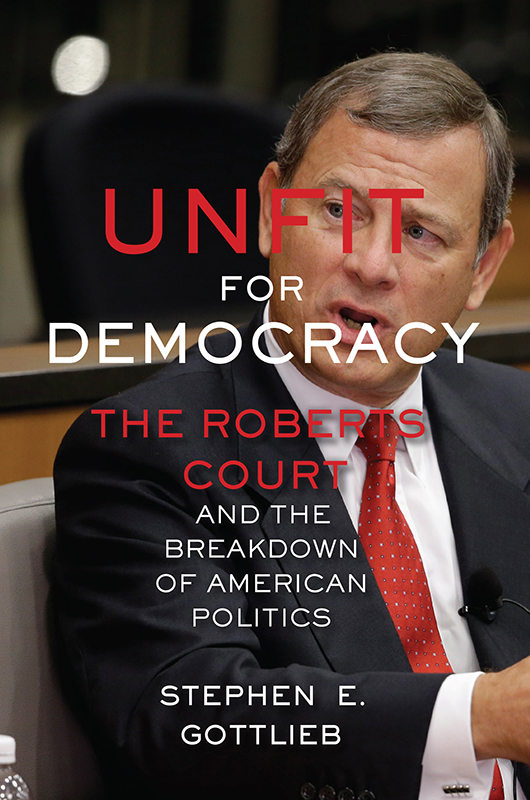
Unfit for Democracy
Unfit for Democracy
The Roberts Court and the Breakdown of American Politics
Stephen E. Gottlieb

NEW YORK UNIVERSITY PRESS
New York and London
NEW YORK UNIVERSITY PRESS
New York and London
www.nyupress.org
2016 by New York University
All rights reserved
References to Internet websites (URLs) were accurate at the time of writing. Neither the author nor New York University Press is responsible for URLs that may have expired or changed since the manuscript was prepared.
Library of Congress Cataloging-in-Publication Data
Gottlieb, Stephen E., author.
Unfit for democracy : the Roberts court and the breakdown of American politics / Stephen E. Gottlieb.
pages cm Includes bibliographical references and index.
ISBN 978-0-8147-3242-7 (cl : alk. paper)
1. United States. Supreme Court. 2. Roberts, John G., 1955- 3. Political questions and judicial power--United States. 4. DemocracyUnited States. 5. Constitutional lawUnited States. I. Title.
KF8742.G684 2015
347.7326--dc23 2015027832
New York University Press books are printed on acid-free paper, and their binding materials are chosen for strength and durability. We strive to use environmentally responsible suppliers and materials to the greatest extent possible in publishing our books.
Manufactured in the United States of America
10 9 8 7 6 5 4 3 2 1
Also available as an ebook
To a nation that pioneered democracy
and invited our ancestors to enjoy
the blessings of liberty and justice for all
and to my wife, our children, grandchildren,
and others we hold dear,
for a better world
Contents
One of my teachers, Thomas I. Emerson, wrote some wonderful studies of the First Amendment. By the time he passed away, the Supreme Court had moved from his focus on the needs of speech, to a focus on the needs and behavior of government. A better approach would incorporate the insights of each. I have spent a good deal of my career thinking about how to recalibrate American constitutional law more in line with Emersons insights. With this book, I hope to repay a bit of the intellectual debt I owe him. He was a wonderful, generous human being and I am supremely lucky to have known him.
I owe a large debt to David Schultz. We collaborated on two articles and then planned and started a project on democracy and constitutional law before we both moved on in different directions. Nevertheless Davids insight, knowledge, and generosity added immeasurably to the result of this book. David also read two very different drafts of this book and gave me the benefit of most helpful comments and criticisms.
The survival and demise of democracy concerned me since I was in college. One of my first guides was the late Professor Wilbert Moore who took time to chat with me around campus on innumerable occasions and helped steer my thinking. I am still indebted to him for his encouragement, generosity, and insight.
I benefitted enormously over many years from working with political scientists on a variety of projects: William Crotty and Roman Hedges, former colleagues on panels and clients on a brief to the Supreme Court, taught me a great deal; James Ceaser, Jerome Mileur, John White, Sarah Morehouse Jewell, Bernard Grofman, Steve Wasby, Byron Nichols, Gerald Pomper, Robert Nakamura, and the late Herbert Alexander and Joseph Board who pulled me into a variety of meetings, panels, and organizations or otherwise saw to my continuing education in the science of politics, as well as others too numerous to name who have been both kind and helpful. I owe them all a considerable debt. And I owe an enormous debt to the teachers who tried to inculcate in me the foundations I would need to follow and take advantage of developments in political science, especially Alpheus Mason, Walter Murphy, Harold Lasswell, and Karl Deutsch.
Friends and colleagues at faculty seminars at Albany, Akron, Boston College, Cleveland-Marshall, Marquette, and Suffolk law schools, participants at panels of the American, International, Midwest, New England, and New York Political Science Associations engaged with the issues I was raising and helped me see at least some of the gaps in my work, and participants at Rockefeller College Policy Conversations, especially Julie Novkov, Bob Nakamura, Rebecca Hamlin and Jason Pierce gave me the benefit of astute suggestions, criticisms, and encouragement. Thanks also to Jennifer Holmes, Ashutosh Varshney, and Kim Lane Scheppele for valuable suggestions in informal conversation. And thanks to my classmate and friend, Tyll van Geel, who made sure I was abreast of important work in the field.
Frank Donegan went over my first draft, helping me improve the books readability; and my research assistant Tracie D. Rozhon, former news reporter turned law student, edited the manuscript closer to fruition and kept pushing me to make it betterfor their help I am extremely grateful. My colleagues and friends James Gathii, Vin Bonventre, and the late John Baker read drafts and gave me the benefit of helpful comments and criticisms. James has been a font of knowledge and suggestions that took me past numerous barriers. Dr. Mark Sakitt read and commented on a draft on one of the relevant issues. I shudder to think what this book would have looked like without the benefit of their friendship, support, insight, and suggestions.
Anne Jelliff, one of my research assistants, grew up in Germany, is bilingual, and gave me a very helpful window into German cases as well as astute help on other issues.
Thanks to Azizah al-Hibri, Rabbi Donald Cashman, Massoud Mafi, and Firdos AbdulMunim for their insights into religious traditions; my colleague Timothy Lytton for his insight and suggestions; and my student Diana Ng and research assistants over the years this book was germinating, Firdos AbdulMunim, Renee Albaugh, Thomas M. Bevilacqua, Deborah Buchanan, Stephen Buckley, Emily Drazan, Lindsay Florek, Joe Frandino, Christopher Hahm, Milena Hanukov, Chris Kimball, Sarah Merritt, Vanessa Murphy, Kelly ODonovan, Roxana Phillipson, Jennifer Ploetz, Brittany Strier, Alissa Sugerman, Mitch Tarighati, and Lindsay Thomas who delved into the materials with enthusiasm, efficiency, strong minds, and discerning eyes.
Library staff at the Albany, Akron, and Suffolk law schools made a huge difference: Bob Begg, Nancy Lenahan, and Mary Wood at Albany, Ellen Delaney at Suffolk, and Paul Reichert at Akron went to a great deal of trouble to help me and I appreciate their efforts enormously. Bob Emerys research magic has been legendary at Albany Law School, and I have been the frequent and deeply grateful beneficiary.
The John F. Seiberling Visiting Chair in Constitutional Law at the University of Akron School of Law gave me the opportunity to begin work on this project as well as an audience for early ruminations. Albany Law School supported it with a research semester and several research grants.
My wife, Jeanette, as always, made writing this easier for me and went through a draft to spot passages too cryptic for nonspecialists. As the writing dragged out, she became my cheerleader and provided the necessary prods to keep going.
Our children, BettyAnne and Eli, daughter-in-law, Karen, and granddaughters, Maggie and Rebecca, are much of the motivation for the book. Their world will be most affected by the trends described. For themas well as for Ivana, our exchange student, and Fabiola, who lived with us while going to college, and their loved ones, and many others we hold dearI want a decent and democratic world. I hope this book contributes in some small way.
Next page

